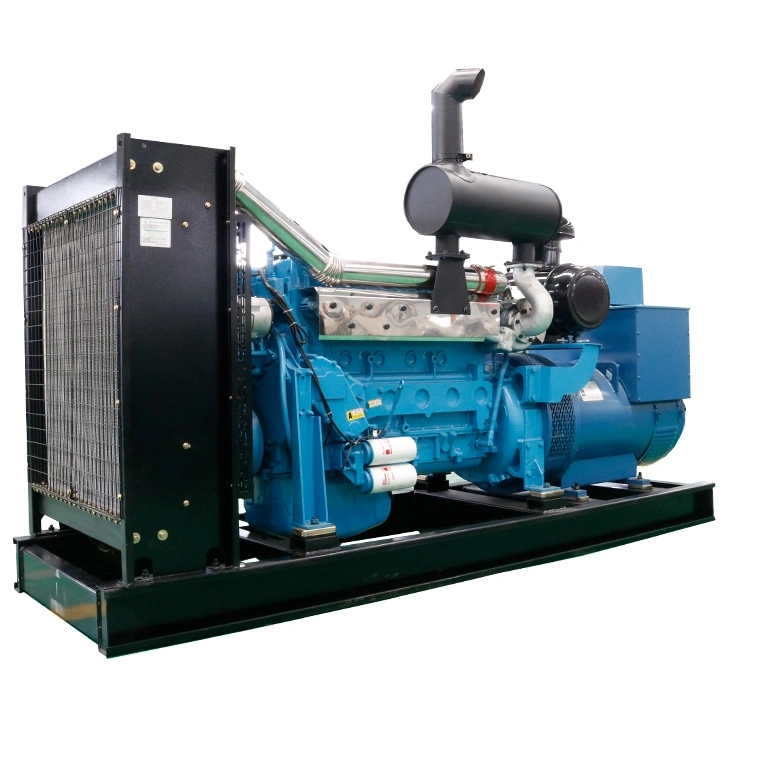Introduction
Diesel generators are widely used across various industries and applications to provide backup power supply in case of outages or as the primary source of electricity in remote locations. One of the key challenges faced by diesel generators is operating in dusty conditions, which can significantly impact their performance and reliability. In this article, we will explore the impact of dust on diesel generators, the importance of proper maintenance and care in dusty environments, and the features to look for when selecting a diesel generator for use in such conditions.
Understanding the Impact of Dust on Diesel Generators
Dust is a common environmental factor that can have a detrimental effect on the performance and longevity of diesel generators. When dust particles enter the engine, they can cause abrasion, corrosion, and blockages in critical components such as air filters, fuel injectors, and cooling systems. This can lead to reduced efficiency, increased fuel consumption, and ultimately, engine failure if not addressed promptly.
In dusty conditions, the air intake system of a diesel generator is particularly vulnerable to clogging and contamination. Dust particles can accumulate on the air filter, restricting the flow of clean air into the engine. This can result in poor combustion, reduced power output, and increased emissions. Additionally, dust can also infiltrate the fuel system, leading to injector fouling and fuel contamination, further compromising the generator's performance.
Proper Maintenance and Care in Dusty Environments
To ensure the reliable operation of diesel generators in dusty conditions, it is essential to implement a comprehensive maintenance and care regimen. Regular inspection and cleaning of air filters, fuel filters, and cooling systems are critical to preventing dust buildup and maintaining optimal performance. In addition, it is important to use high-quality fuel and lubricants that are specifically formulated for use in dusty environments to minimize the risk of contamination and wear.

Another key aspect of maintenance in dusty conditions is ensuring proper ventilation and air circulation around the generator. Dust can accumulate on the exterior surfaces of the generator, blocking airflow and causing overheating. 600kw generator of the generator enclosure and surrounding area can help prevent this issue and prolong the life of the equipment.
Features to Look for in Diesel Generators for Dusty Conditions
When selecting a diesel generator for use in dusty conditions, there are several key features to consider to ensure optimal performance and reliability. One of the most important factors to look for is a robust air filtration system that is capable of capturing and removing fine dust particles before they can enter the engine. High-efficiency air filters with pre-cleaners and dust ejectors are ideal for dusty environments, as they can effectively prevent contamination and clogging.
In addition to a reliable air filtration system, it is also important to choose a diesel generator with a durable and corrosion-resistant construction. Dust can accelerate the wear and deterioration of metal components, so generators made of high-quality materials such as stainless steel or aluminum are preferable for use in dusty conditions. Weatherproof enclosures with sealed seams and gaskets can also help protect the generator from dust ingress and moisture damage.
Furthermore, selecting a diesel generator with advanced monitoring and control features can help mitigate the impact of dust on the equipment. Remote monitoring capabilities, automatic shutdown systems, and real-time diagnostics can alert operators to potential issues and prevent catastrophic failures due to dust contamination. Additionally, generators with built-in self-cleaning mechanisms for air filters and cooling systems can reduce the frequency of maintenance tasks and ensure consistent performance in dusty environments.
Conclusion
Diesel generators play a crucial role in providing reliable power supply in various industries and applications, but their performance can be compromised when operating in dusty conditions. By understanding the impact of dust on diesel generators, implementing proper maintenance and care practices, and selecting generators with the right features, operators can ensure the longevity and efficiency of their equipment in challenging environments. With the right precautions and proactive measures, diesel generators can continue to deliver consistent power output and reliability, even in the face of dust and debris.
